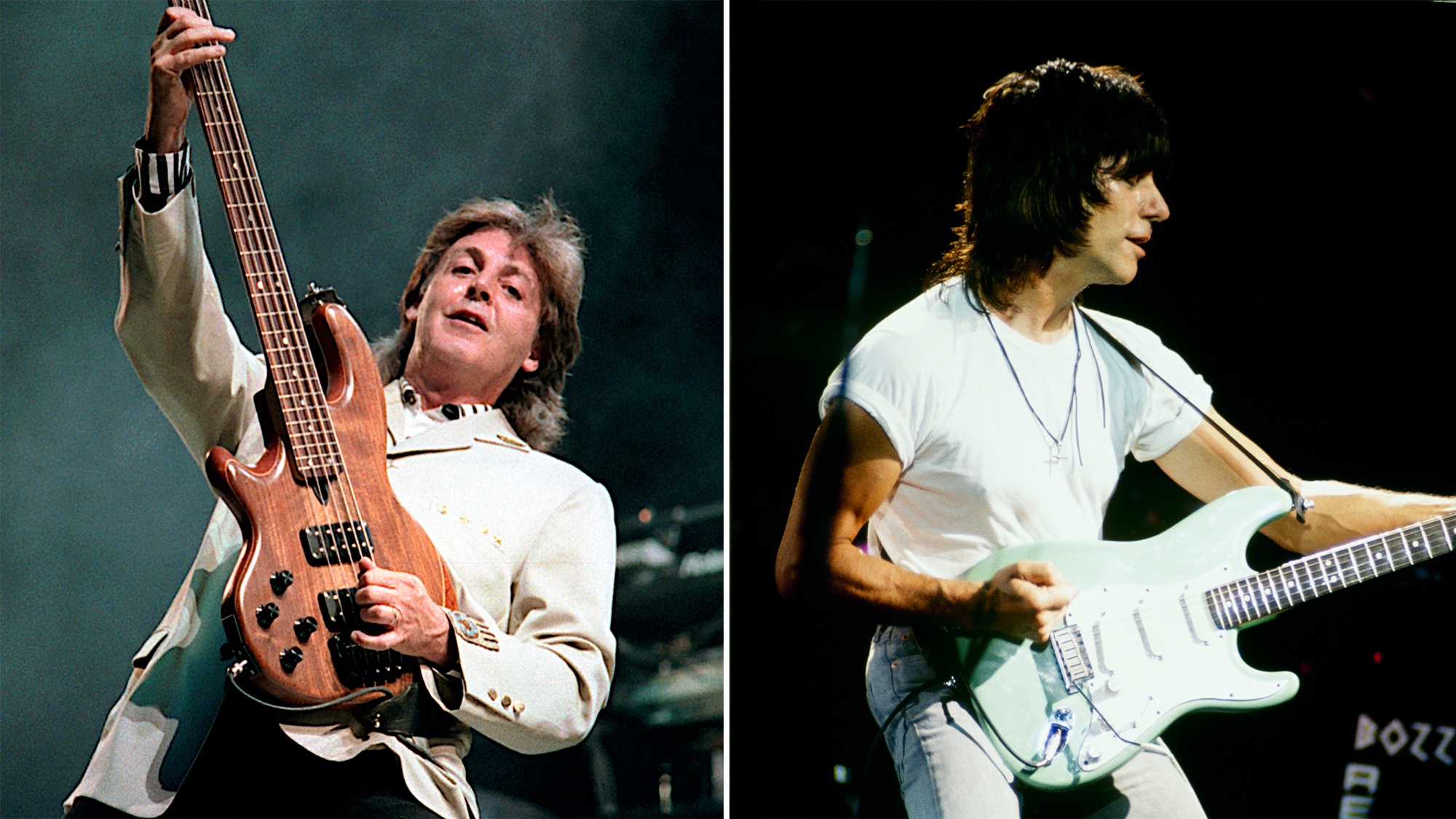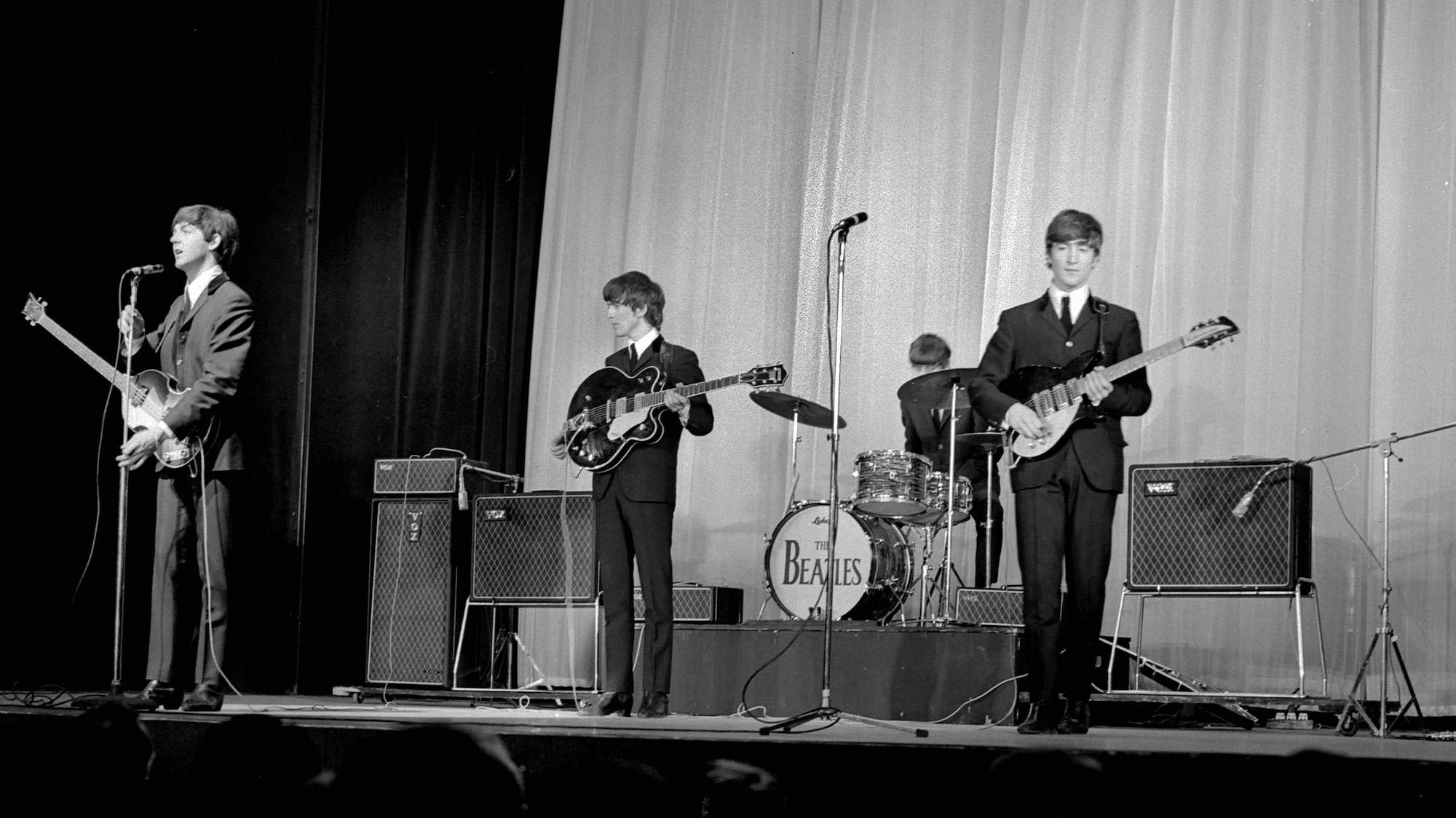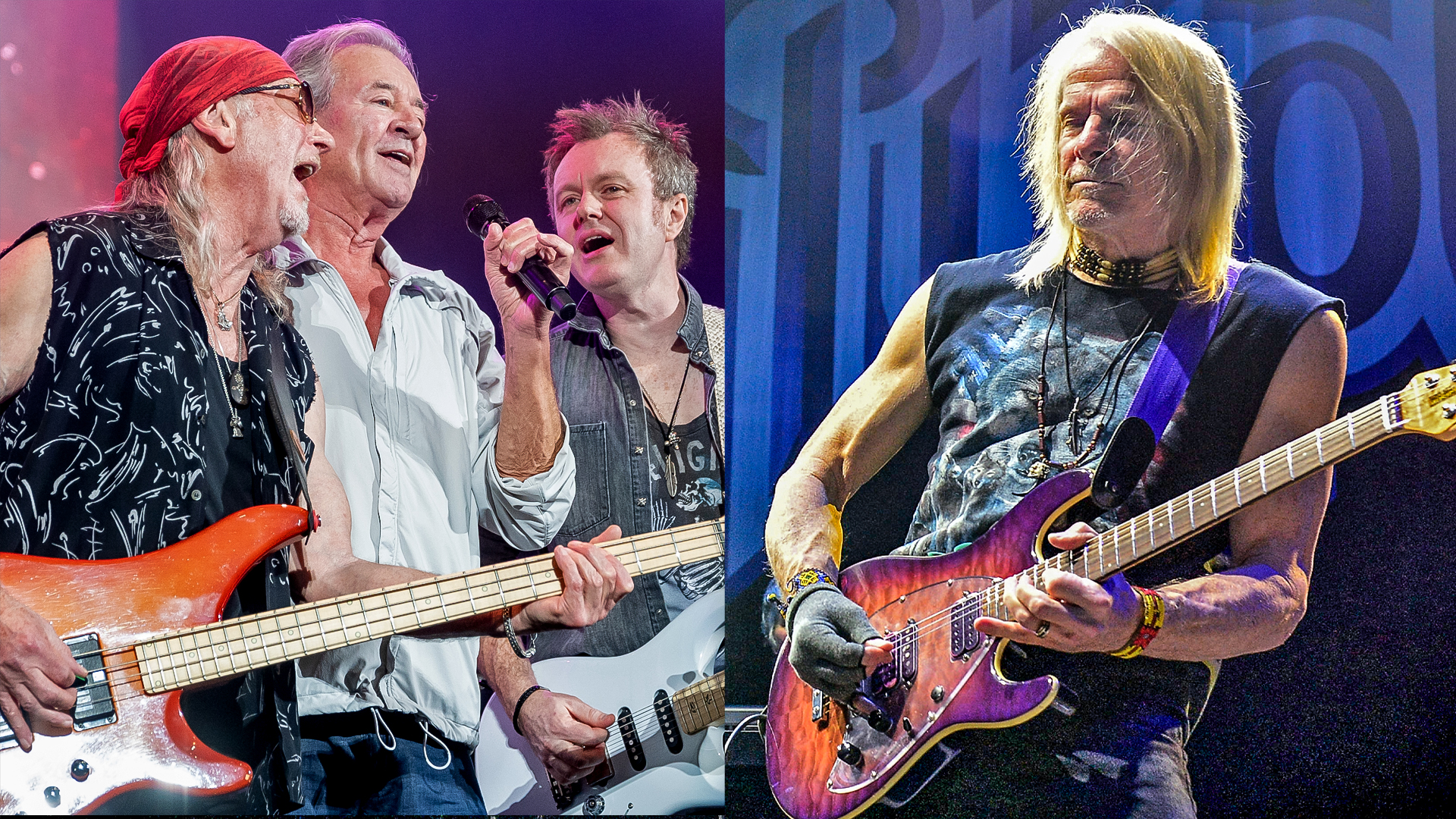“I once asked Jeff Beck if he used Vox AC30s, and he said, ‘What? Those old Beatle bashers?’ Then he realized what he'd said”: Paul McCartney talks Vox amps, and his love of dirty tones
In a 1990 GP interview, McCartney expressed his personal preference for gnarlier rock tones from his Vox amps,

Vox guitar amps and the Beatles' early years are as synonymous with one another as peanut butter and jelly.
In keeping with the group's gradual splintering during the late '60s, though – and simultaneous pursuit of more individual musical paths – the Fab Four experimented with a wider range of gear as the years went on.
As Paul McCartney told GP in a 1990 interview, though, his personal fondness for the Vox amps of the Beatles' early days never faded.
Asked by GP if he ever spent time at home toying with tones, Macca said, “I do that mainly in the studio, which is almost like home. I can go in and just goof, and sometimes I just work on guitar sounds. I can get a nice clean sound fairly easily.
“It's the pumped-up sounds that I like to experiment with,” McCartney continued, “I've got one of the old Vox AC30s that Jeff Beck used to call ‘the old Beatle bashers.’ I once asked him if he used them, and he said, ‘What? Those old Beatle bashers?’ Then he realized what he'd said [laughs].”

In the same interview, McCartney – typically pigeonholed as the Beatle most inclined to buttoned-up, more old school pop – expressed his personal preference for gnarlier rock tones, despite his reputation.
“I love the sound of them [Vox AC30s],” he said. “I actually love the straight sound. It's pokey. It's not too clean. I'm not a big fan of clean in rock and roll. It's funny, in a way, because I guess I've got a reputation for being a fairly clean rock and roller. But my taste doesn't extend that way.”
All the latest guitar news, interviews, lessons, reviews, deals and more, direct to your inbox!
Just as so many guitarists were in the mid-1960s, McCartney – not to mention John Lennon and George Harrison – found himself influenced by the ferocious tones achieved by Eric Clapton in his work with John Mayall's Bluesbreakers and Cream.
That aggression, in turn, influenced perhaps McCartney's finest guitar moment in the Beatles' catalog, his fiery guitar solo on the Harrison tune, Taxman.
“Turned on” – as he put it to GP in the same 1990 chat – after his exposure to the nascent British blues-rock scene, McCartney “went and bought an Epiphone. So then I could wind up with the Vox amp and get some nice feedback.”

Jackson is an Associate Editor at GuitarWorld.com and GuitarPlayer.com. He’s been writing and editing stories about new gear, technique and guitar-driven music both old and new since 2014, and has also written extensively on the same topics for Guitar Player. Elsewhere, his album reviews and essays have appeared in Louder and Unrecorded. Though open to music of all kinds, his greatest love has always been indie, and everything that falls under its massive umbrella. To that end, you can find him on Twitter crowing about whatever great new guitar band you need to drop everything to hear right now.
- Tom MulhernWriter/Editor
